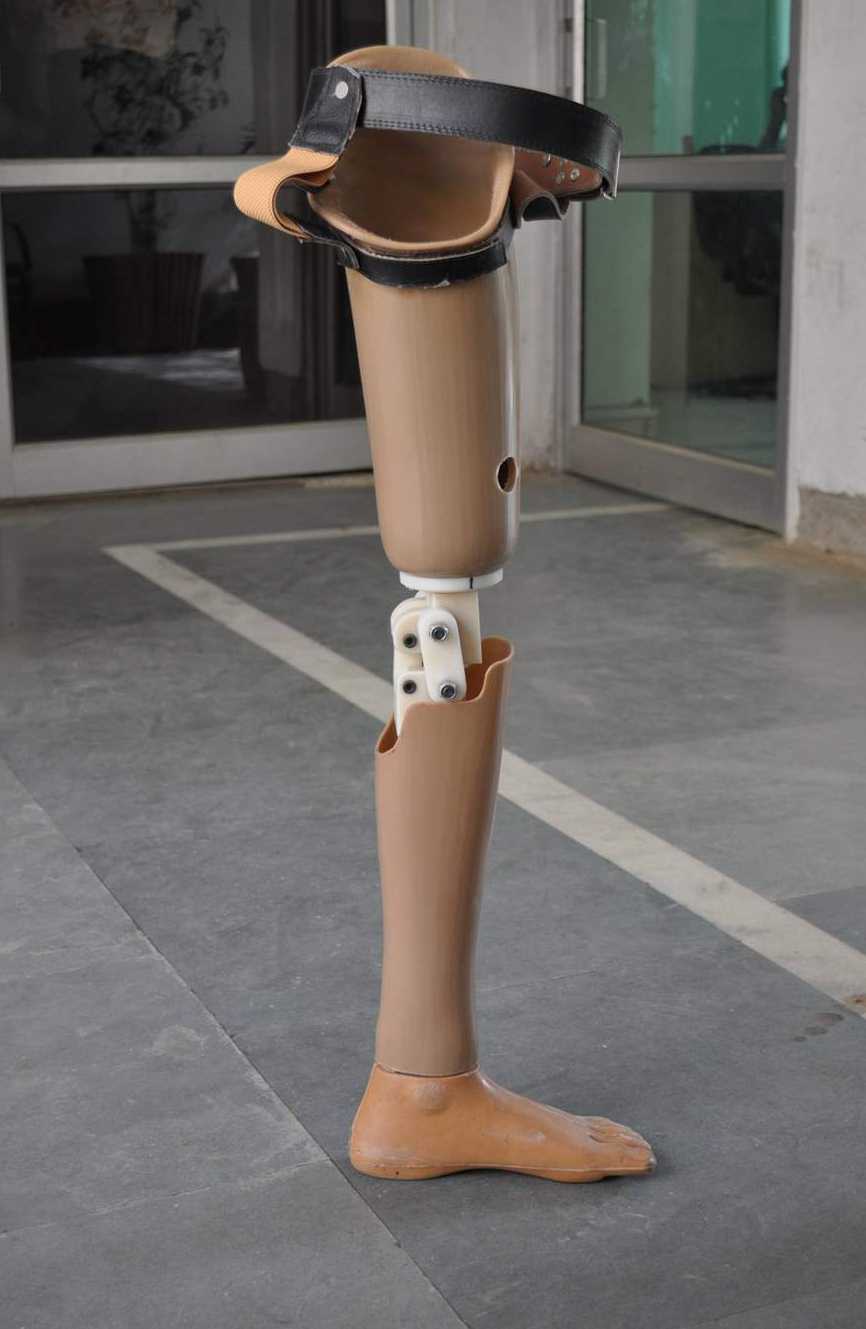Brio
A digital service to improve a prosthetic wearer's experience in adapting to their new bionic.
Teammate: Tanushi Lath
Date: December 2022
Tools: Figma
Adobe Firefly
Adobe Creative Cloud
Mentor: Dinesh Abiram

Brief
Welcoming home leveraging IOT.
We interpreted home as our own body. A person's body is their home, so when that home is unfamiliar how can we facilitate comfort.
Re-Brief
Enabling a Prosthetic User's re-orientation to Their New Body
Research
Observations
Prosthetics started off with static attachments for amputees
Bionic attachments are fairly new and incorporate IOT. They are computer or microprocessor-controlled components which improve mobility, safety, and function.
They have become an extension of humans as human become extensions of them
"The limited battery life of my bionic limb can be a real inconvenience. I have to plan my day around recharging it, which can be a hassle."

Jaipur Foot
PRosthetic
A mechanical solution

Covvi Bionic arm
"She said the tech was not just changing her life, it was changing the lives of her three children.
"They think it's amazing and I'm like half human-half robot," she said."
"I'm not trying to hide who I am," she said. "I'm adding and expanding on who I am by being able to access technology that's never been available before."
Speculation
"Bionics will soon become extensions of humans as humans become extensions of them"
Bionics not only enhance people's ability to perform daily tasks with ease but also empower individuals to transcend their natural capabilities
Considering the evolving potential of bionics as a means of extending the human body, it is conceivable that in the near future, people will have the opportunity to select and customise the extensions they desire to augment themselves.
(For the extent of this project, we have limit ourselves to the currently available providers of bionic limbs. However, we envision a promising and expansive future in this field of research.)
Pain Points
Difficulty in monitoring the bionic use remotely and reconfiguring if required
Weakness in the residual stump
Inability to understand incorrect movements/use
Phantom limb pain
Irritation/ chafing
Tactile perception

Features
Digital twin to replicate incorrect movements and help in improvement

Personalised workouts/ routines

Anytime communication with the health care provider

Constant bionic efficency and health tracking

(Characters generated using Adobe Firefly)


Brio
A digital service to improve a prosthetic wearer's experience in adapting to their new bionic.
Teammate: Tanushi Lath
Date: December 2022
Tools: Figma
Adobe Firefly
Adobe Creative Cloud
Mentor: Dinesh Abiram

Brief
Welcoming home leveraging IOT.
We interpreted home as our own body. A person's body is their home, so when that home is unfamiliar how can we facilitate comfort.
Re-Brief
Enabling a Prosthetic User's re-orientation to Their New Body
Research
Observations
Prosthetics started off with static attachments for amputees
Bionic attachments are fairly new and incorporate IOT. They are computer or microprocessor-controlled components which improve mobility, safety, and function.
They have become an extension of humans as human become extensions of them
"The limited battery life of my bionic limb can be a real inconvenience. I have to plan my day around recharging it, which can be a hassle."

Jaipur Foot
PRosthetic
A mechanical solution

Covvi Bionic arm
"She said the tech was not just changing her life, it was changing the lives of her three children.
"They think it's amazing and I'm like half human-half robot," she said."
"I'm not trying to hide who I am," she said. "I'm adding and expanding on who I am by being able to access technology that's never been available before."
Speculation
"Bionics will soon become extensions of humans as humans become extensions of them"
Bionics not only enhance people's ability to perform daily tasks with ease but also empower individuals to transcend their natural capabilities
Considering the evolving potential of bionics as a means of extending the human body, it is conceivable that in the near future, people will have the opportunity to select and customise the extensions they desire to augment themselves.
(For the extent of this project, we have limit ourselves to the currently available providers of bionic limbs. However, we envision a promising and expansive future in this field of research.)
Pain Points
Difficulty in monitoring the bionic use remotely and reconfiguring if required
Weakness in the residual stump
Inability to understand incorrect movements/use
Phantom limb pain
Irritation/ chafing
Tactile perception

Features
Digital twin to replicate incorrect movements and help in improvement

Personalised workouts/ routines

Anytime communication with the health care provider

Constant bionic efficency and health tracking

(Characters generated using Adobe Firefly)



